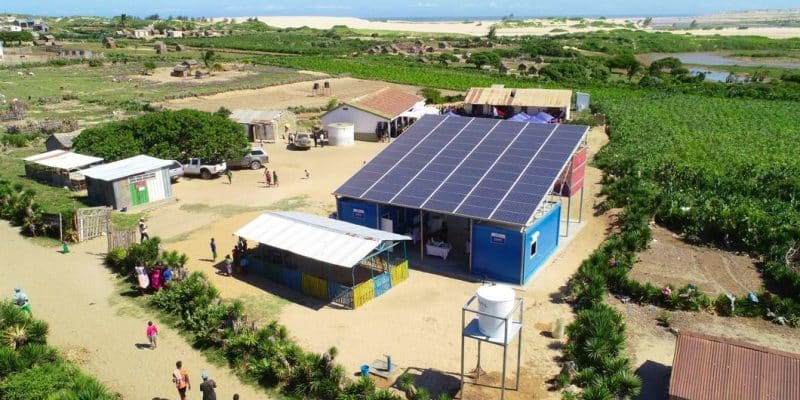The World Food Programme (WFP) is partnering with the government of Madagascar to address the climate emergency in the south of the island, mainly in the Androy and Anosy regions. This part of the country is prone to natural disasters and has been facing a prolonged drought in recent years.
In Madagascar, the United Nations (UN) World Food Programme (WFP) is coming to the rescue of the government in its response to the natural disasters and drought that has affected the island in recent years. In partnership, the Malagasy government and the WFP will implement the Rapid Rural Transformation (RRT) Initiative, which aims to provide a rapid response to populations impacted by the climate crisis.
In this context, a pilot project has just been completed in the Anosy region. It has enabled the setting up of centres powered by solar energy. The site is equipped with a drinking water supply (AEP), a digital service platform to provide essential services, all powered by solar photovoltaic energy. These facilities are managed by the local authorities.
Solar energy to facilitate access to essential services
“With this pilot project, we will facilitate rural transformation even in geographically isolated areas, through the provision of drinking water for irrigation, the operation of health care facilities, the expansion of entrepreneurial opportunities and the development of their agricultural value chains,” explains Jocelyn Raharimbola, Governor of the Anosy region.
Read also- MADAGASCAR: Drought starves over a million people in the south of the country
According to WFP, the centre enables various partners to set up integrated community services such as training centres for women and youth on food production and business skills, as well as digital classrooms, while improving agricultural production through solar drip irrigation and hydroponics.
A focus on agriculture in the face of drought
Access to services is essentially only one step in the response to the climate emergency in the southern part of Madagascar. Food insecurity caused by drought must be addressed in a sustainable way. The RRT initiative will also improve the management of natural resources with the introduction of improved agricultural techniques to ensure continuous food production.
The implementation of these solutions is urgent, as 2.2 million people are food insecure in the south and southeast of the island due to the drought. Because of its geographical position in the Indian Ocean, Madagascar is very vulnerable to climatic shocks. During the recent 2021-2022 cyclone season, the country was hit by six storms and tropical cyclones in the space of one month. In order to support the government’s response to climate shocks, the African Development Bank (AfDB) a few weeks ago validated US$ 19.2 million in funding from the Transition Support Facility (TSF) and the African Disaster Risk Financing (ADRiFi) programme.
Jean Marie Takouleu







